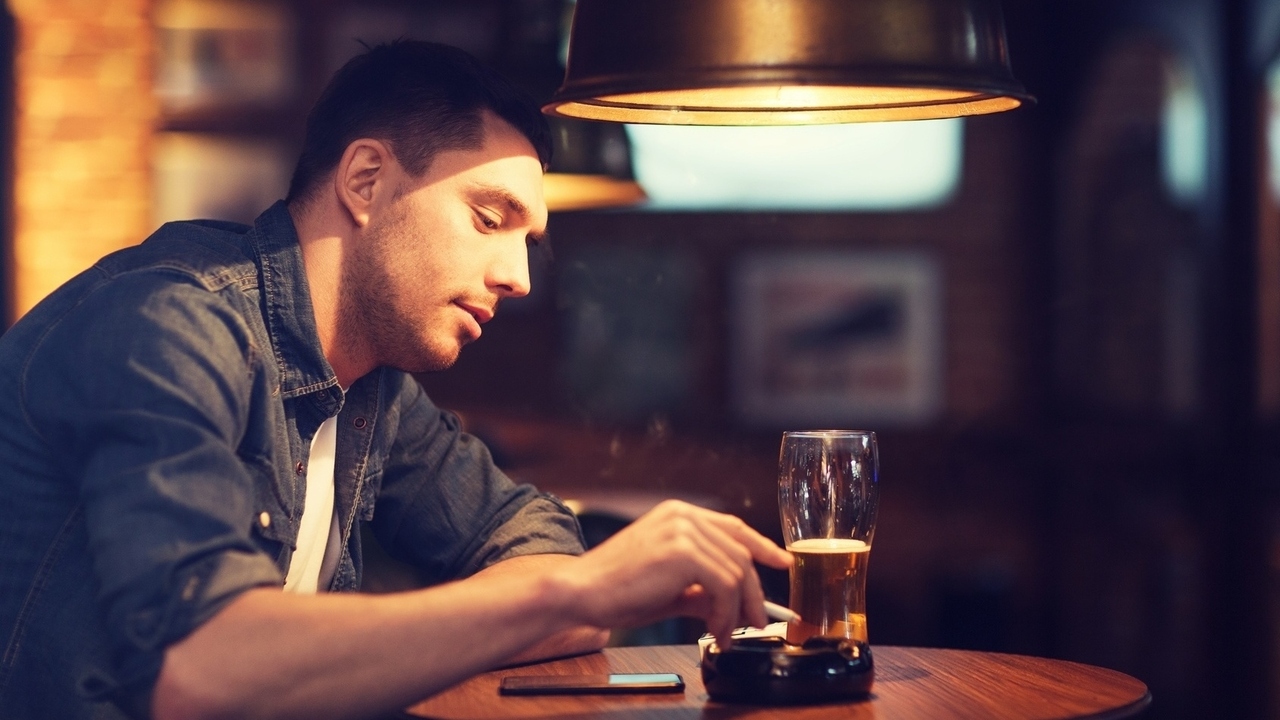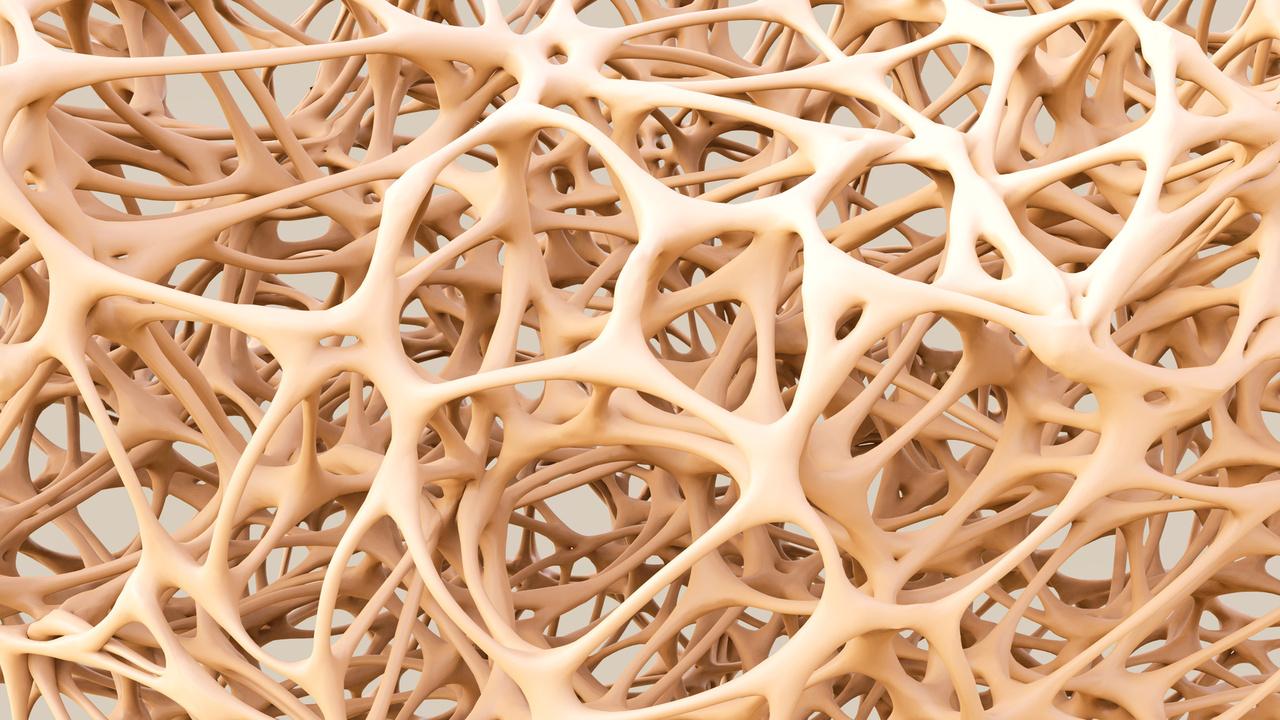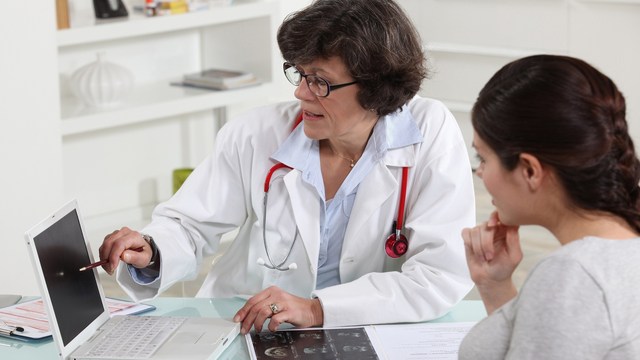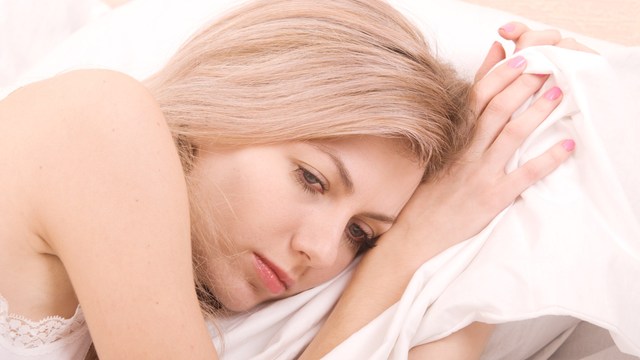Osteoporosis is low bone density, or porous bones. Your bones should be dense and solid. There are varying degrees of bone density. Osteoporosis is when the bone density is pathological and you are at a risk for fracture. The type of fracture that is of most concern is a hip fracture. When you have osteoporosis, there is also a higher risk of mortality, high risk of morbidity.
Osteopenia is when there is a decrease in bone density, so you are almost osteoporotic, but you are not quite there yet.
What causes osteoporosis?
The most common cause of osteoporosis is being post menopause. After menopause, a woman's estrogen decreases and with that, you get less of a calcium build-up in your bones. Women, after the age of about 52 (51-52 is the average age of menopause), you may start to see osteoporosis.
Some women have had their ovaries removed, or have had a hysterectomy (sometimes they remove the ovaries, sometimes they take it out), which can happen at any age, often if you have uterine fibroids. These women are also more susceptible to osteoporosis.
It is not common for men to have osteoporosis. Dr. JJ has a few male patients with osteoporosis. It is usually because they are not physically active or it runs in their family. There is also a genetic association to osteoporosis. If there is a family history, you are more susceptible to osteoporosis.
How can you prevent osteoporosis? What can you do to prevent osteoporosis?
The main things you can do to prevent osteoporosis are: exercising, eating foods high in calcium and taking supplements.
Exercise: You need to do weight bearing exercise like walking, jogging, soccer, tennis. These forms of physical activity put strain on your bones which makes them stronger and denser. A non-weight bearing exercise like swimming is good for your healthy, but it doesn't benefit your bones.
Eat foods that are high in calcium: like spinach, broccoli, dairy, sesame seeds, molasses.
Supplements:
Calcium with Vitamin D and Magnesium
Vitamin K
Boron
Vitamin D
Daily dose of calcium:
Woman- pre-menopausal 1,000 mg/day
during menopause and after menopause: take 1,500 mg/day
Pregnant or lactating women don't need to adjust their doses. Dr. JJ commented that they would likely also be taking a pre-natal vitamin which would help them achieve the amount they require.
How can you find out if you have osteoporosis?
When you are about 45, you should arrange through your doctor to have a bone density scan . A bone density scan is typically done every 2 years, depending on the patient's bone density. Women who have had their ovaries remove should have a bone density test every 2 years.
The bone density test does not hurt. It is a non-invasive test that checks your wrist, your hip and your spine. It is basically a fancy x-ray machine.
What's Dr. JJ taking today?
Dr. JJ is taking a calcium and magnesium with Vitamin D. Usually women need to take calcium more than men, but Dr. JJ is practicing preventative medicine and taking some today.
Jennifer takes calcium in a liquid form. Dr. JJ commented that a liquid form is good too, but sometimes it doesn't taste very good. You should always take minerals in a citrate form, as that is the most absorbable form.
You should avoid taking minerals with your coffee, as it interferes with the absorption of the mineral.
If you would like to find an alternative healthcare practitioner to help you address a health issue, you can find a naturopath, holistic nutritionist and other practitioners in your community through the Find a Practitioner link on our website www.vitaminjunkeys.com
http://www.vitaminjunkeys.com/play-video.php?vitamanJunkeyID=What_is_Osteoporosis






Add a CommentComments
There are no comments yet. Be the first one and get the conversation started!